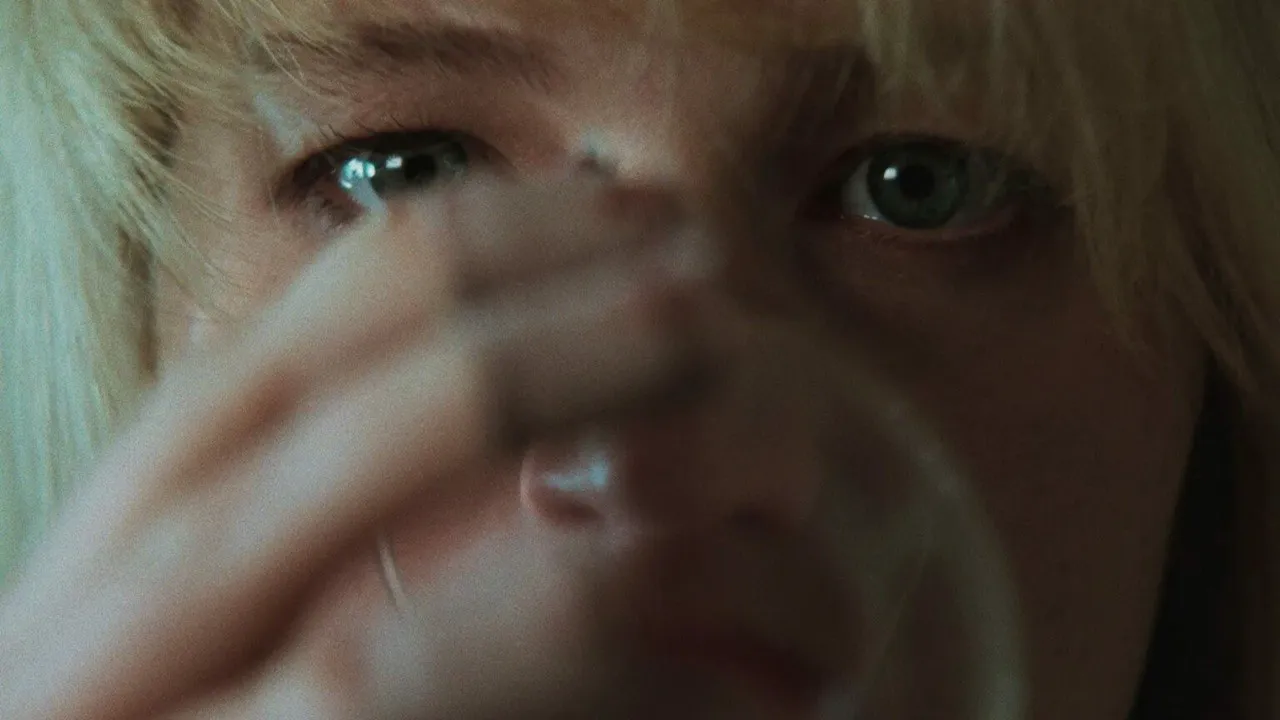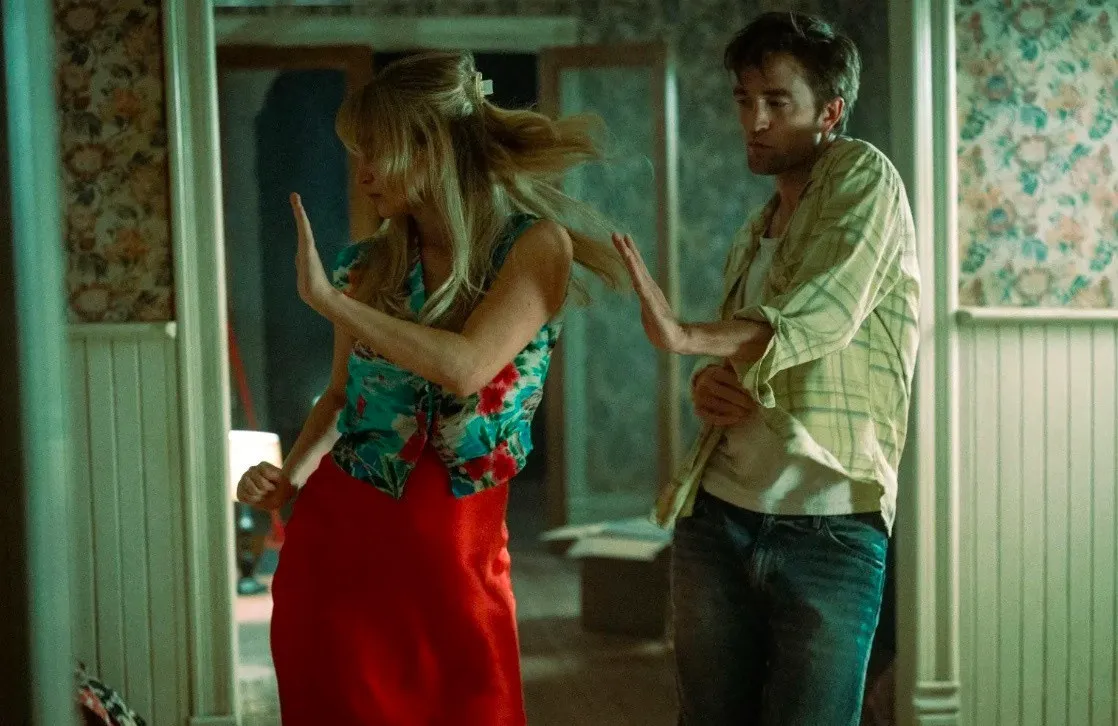“Happily ever after” begins somewhere like this: a young married couple, brimming with life, overwhelming attraction, and seemingly inexhaustible energy, moves into a house in an almost idyllic spot near the woods. It’s a secluded place where Mrs. (Jennifer Lawrence) can focus on her writing, Mr. (Robert Pattinson) on his music, and together they can indulge in a love that feels too big for four walls. Soon, they’ll be three, even four: Grace is pregnant, and Jackson brings home a dog. One might anxiously anticipate a thriller about home invasion or a slow-burn about a restless ghost—the house was inherited from an uncle who committed suicide. But whatever external threats loom, the real crack is forming within their union.

Jennifer Lawrence as Grace in a still from “Die, My Love”
Exploring Female Experience Through Empathy
Discussions about fertility, reproductive functions, and other transformations that both the female body and mind undergo often fall flat, or are perceived as mere feminist statements, cries for help rather than artistic invitations into a personal story. More manifesto than drama. Thus, female directors have shifted towards immersive experiences, attempting not verbally, but empathetically, to draw the viewer into the state of a mother on the verge of a nervous breakdown. At Sundance and Berlinale, “If Only I Could Kick You” was shown, where the hypnotic Rose Byrne and director Mary Bronstein transformed the routine of a tired mother into an existential action. Lynne Ramsay chooses an even more radical range of states: Lawrence’s pendulum swings from absolute apathy to unbridled rage, from frantic despair to all-consuming mania.

Jennifer Lawrence as Grace in a still from “Die, My Love”
A Descent into Madness: Adapting “Die, My Love”
The script is based on Arina Harvitch’s novel of the same name—a chronicle of destructive impulses that erupts like scorching lava from within. The film opens with a scene of fire—an inevitable disaster that awaits both the family on screen and the audience in the theater. Ramsay seems to look beyond the human and relies on the natural and animalistic: first, passion makes them growl and yearn for each other, and then deep, visceral despair makes them howl and almost tear at their flesh. Ramsay’s method of “being in someone else’s skin” is often criticized after screenings: the director prefers rage to reflection, roars to dialogues, screams to whispers. Lawrence throws herself into all facets of the breakdown with detached courage, dancing, screaming, crawling on the floor, climbing the walls, almost hanging from the ceiling—homelessness raised to the absolute, no time for introverted experiences; hugging her knees, Grace pours out loneliness in an endless stream of disjointed actions and unrealized desires.
Isolation and Despair
The vulnerability of the mother and the indifference of those around her coincide with the feeling of abandonment and frightening social isolation faced by Tilda Swinton’s character in the merciless “We Need to Talk About Kevin.” The mother cannot resist her son and does not receive an antidote to her anxiety in the form of support from loved ones or even meaningful attention. Grace is literally isolated—the perfect house from a picturesque painting, which was supposed to be a gentle haven and a world for two + one, turns into a cave, a crypt where love dies. Jackson, who was eagerly fascinated by his wife, not only cooled down physically after the birth of the child, but is also incapable of engaged dialogue. Farewell, speech! The place of remarks and expressions of feelings is taken by the endless barking of a dog that cannot find peace.
Visual Expression and Future Prospects
“Die, My Love” is a rich and stunningly beautiful film of visual expression: Southern Gothic continues to frighten with deserted roads, a woman with a gun at night in a field, the howling of dogs, and all-consuming despair on the ruins of paradise. Jennifer Lawrence herself recently became a mother (Robert Pattinson also became a father) and had to take a break from filming. Returning to the big screen under the guidance of Lynne Ramsay could well become a springboard for new victories and awards in gold—perhaps recognition will begin as early as tomorrow evening with the presentation of the “Palme d’Or” for best role.